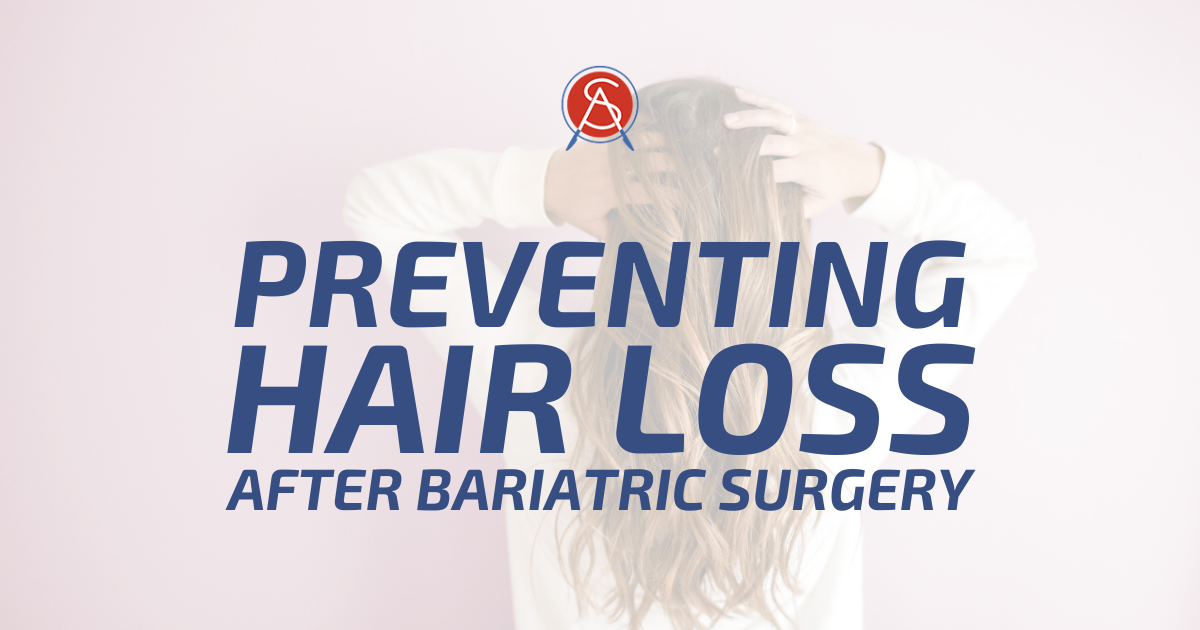Almost half of patients, both men and women will experience hair thinning after their bariatric procedure. This occurs due to the trauma of surgery, combined with reduced caloric and protein intake, both of which can enhance the resting cycle of the hair follicles and reduce their active cycles.
Many patients become alarmed by the thinning of their hair, but for most, it should not be a major concern. That is because hair loss after bariatric surgery is usually reversible, unless a genetic condition such as male pattern balding is also at play.
 Your risk for hair loss after bariatric surgery is also partially predicated upon which procedure you undergo. Gastric bypass patients have a more limited post-operative diet than gastric sleeve patients and will lose weight more quickly, especially in the early post-op period. These patients will also have a greater likelihood of losing hair.
Your risk for hair loss after bariatric surgery is also partially predicated upon which procedure you undergo. Gastric bypass patients have a more limited post-operative diet than gastric sleeve patients and will lose weight more quickly, especially in the early post-op period. These patients will also have a greater likelihood of losing hair.
So, what are the best tips to minimize hair loss after surgery?
First and foremost, our practice has tailored your postoperative lifestyle and exercise regimen to minimize many of the considerations of bariatric surgery, including hair loss. Following the protein requirements after surgery significantly reduce the likelihood of losing more hair.
Secondly, and importantly, is not to stress out about your hair loss or thinning. You already know that this is a temporary condition, and many times cannot be prevented. We don’t quite know why some patients lose more hair than others, but ultimately it is temporary for everyone. Also, stressing about your hair loss will only make it worse. In addition, the stress from worrying about can have a cumulative negative effect — it will make it more difficult to lose weight, increase the temptation of eating foods that do not conform to your bariatric lifestyle, and generally make you less motivated, more tired and less successful.
What not to do when losing hair
Within the first year to 18 months after surgery, it is important that you do not undertake any over the counter, medical or surgical interventions for your hair loss without speaking to your surgeon. Once again, the hair loss is temporary, and trying to slow it with any kind of intervention other than focusing on your recovery can be counterproductive.
If you are truly concerned about your hair thinning, we encourage you to contact our office. We will be more than happy to discuss your hair enhancement options and reassure you that what you are experiencing is perfectly normal. Further, we can work with you to modify your diet plan in an effort to try and slow further hair thinning and reverse any hair loss more quickly.
Ultimately, there’s not much to worry about when it comes to hair thinning. There’s a good chance it will happen after bariatric surgery, and taking it in stride will lead to a more enjoyable aftercare process during which time you can focus on your new lifestyle and weight loss.










